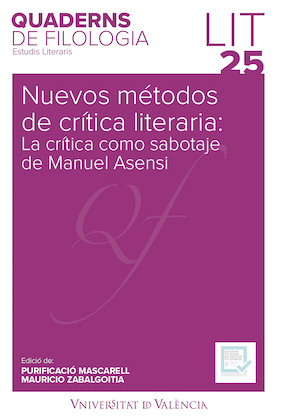The sabotaged oracle: ideology and guided behaviors in the Spanish Golden Age comedia
DOI:
https://doi.org/10.7203/qdfed.25.18995Keywords:
theatre, power, oracles, sabotage, Siglo de Oro. Abstract
Abstract
This article proposes an analysis of the Siglo de Oro theatrical genre in one of its rhetorical mechanisms with greater performative capacity: the oracular dramatic function from which a higher voice –be it an oracle, a dream, an inner voice or any other transitory possession– is simultaneously heard by the receiver-character and by the receiver-public. The playwright thus hierarchizes the heterogeneity of discourses present in the microcosm of the play and, offering an epistemological syllogism, encourages the first to act directly and the second metonymically. Criticism understood as sabotage offers critical tools that allow to unmask the ins and outs of these oracular resources that impose a world model on the recipients of the greatest mass show of early modernity.
 Downloads
Downloads
Downloads
Published
How to Cite
-
Abstract503
-
PDF (Español)333
Issue
Section
License
 Este obra está bajo una licencia de Creative Commons Reconocimiento-NoComercial-SinObraDerivada 4.0 Internacional.
Este obra está bajo una licencia de Creative Commons Reconocimiento-NoComercial-SinObraDerivada 4.0 Internacional.
Authors who publish with this journal agree to the following terms:
- Authors retain copyright and grant the journal right of first publication with the work simultaneously licensed under a Creative Commons Attribution License that allows others to share the work with an acknowledgement of the work's authorship and initial publication in this journal.
- Authors are able to enter into separate, additional contractual arrangements for the non-exclusive distribution of the journal's published version of the work (e.g., post it to an institutional repository or publish it in a book), with an acknowledgement of its initial publication in this journal.
- Authors are permitted and encouraged to post their work online (e.g., in institutional repositories or on their website) prior to and during the submission process, as it can lead to productive exchanges, as well as earlier and greater citation of published work (See The Effect of Open Access).




